Cognitive Development Easy Numbers Worksheets for Ages 3-6
11 filtered results
-
From - To
Introducing "Cognitive Development Easy Numbers Worksheets for Ages 3-6," a fun and engaging resource designed to enhance early math skills. These worksheets focus on number recognition, counting, and basic arithmetic principles while boosting cognitive growth in young learners. With vibrant illustrations and interactive activities, these printable worksheets make learning enjoyable and effective for preschoolers and kindergarteners. Perfect for parents and educators, this collection supports foundational math skills, critical thinking, and problem-solving abilities, setting the stage for future academic success. Explore our easy-to-use worksheets to give your child a head start in their educational journey!
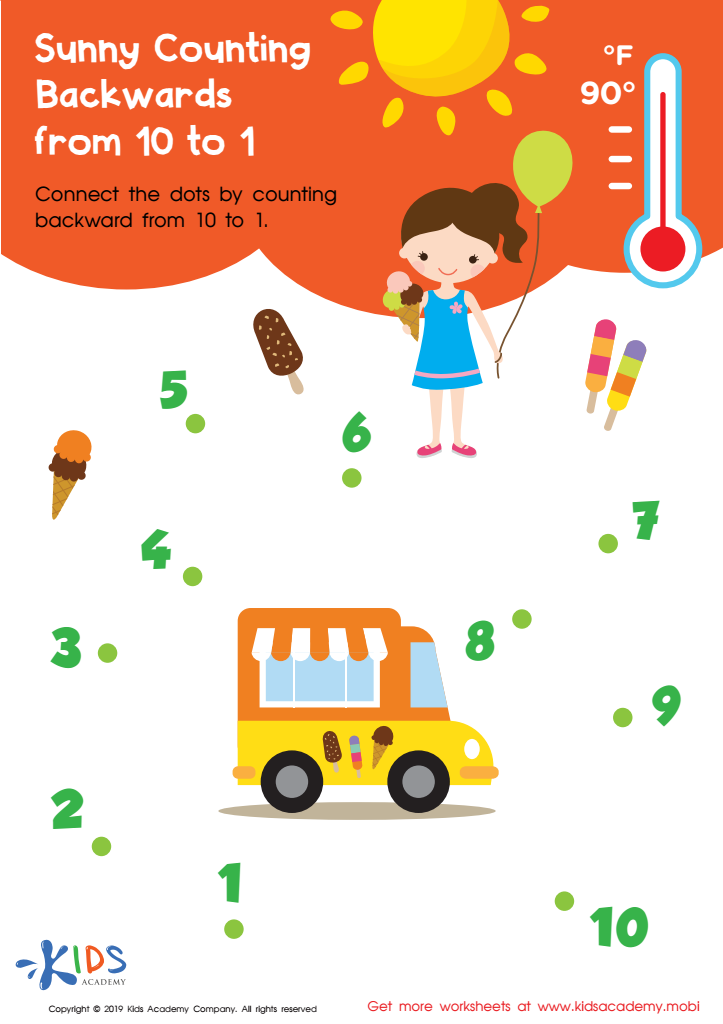

Sunny Counting Backwards from 10 to 1 Worksheet
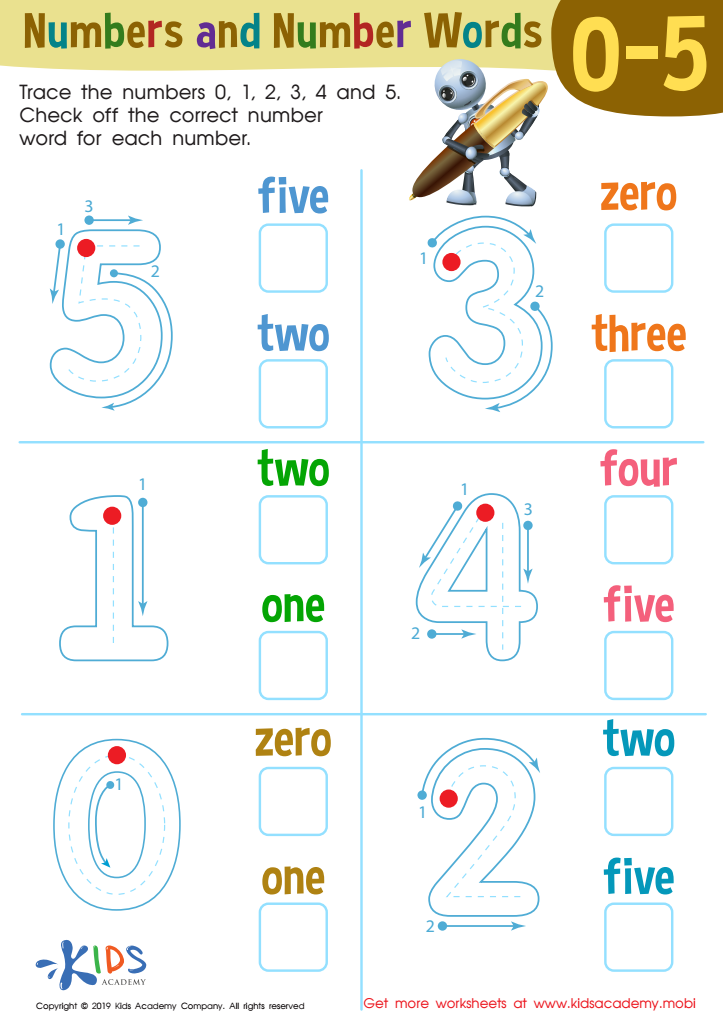

Numbers and Number Words Worksheet
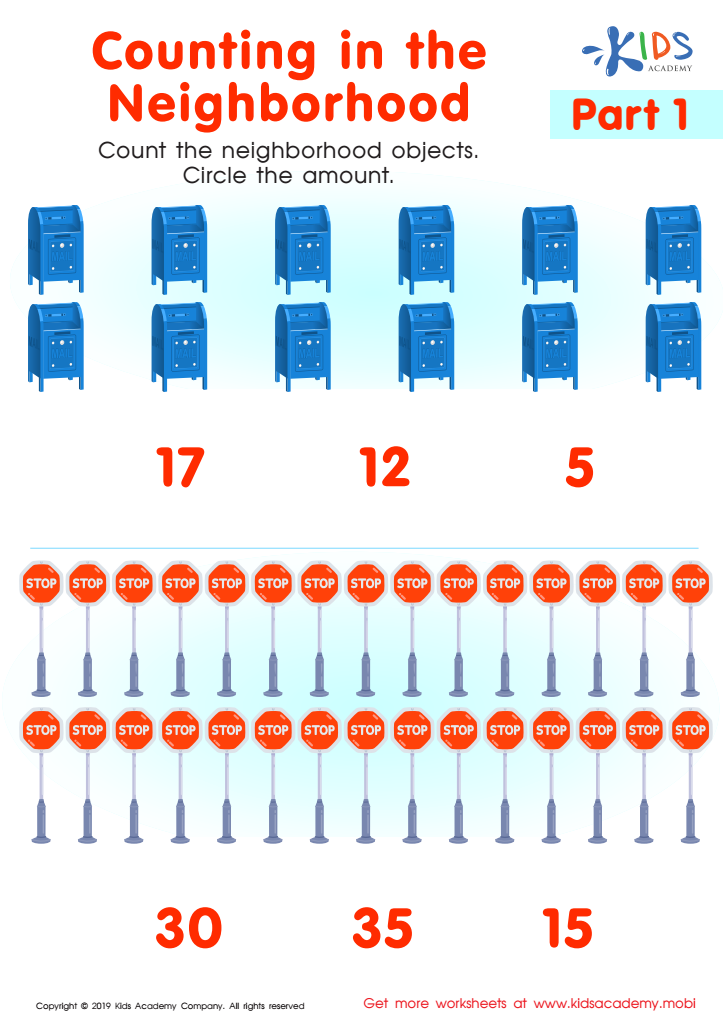

Counting in the Neighborhood Part1 Worksheet
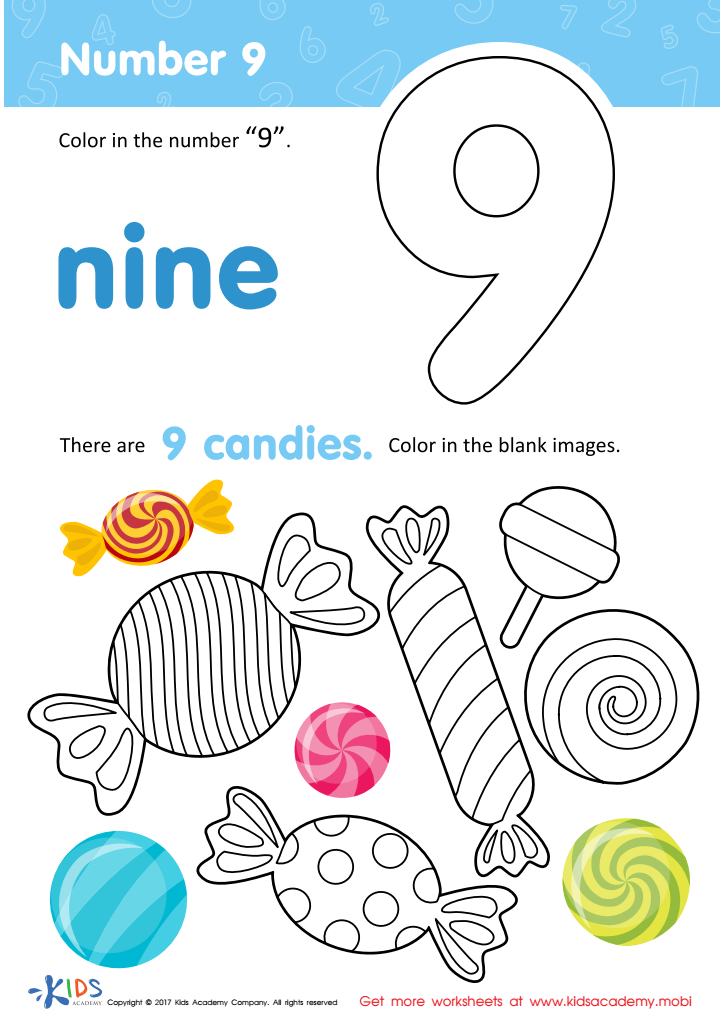

Number 9 Printable
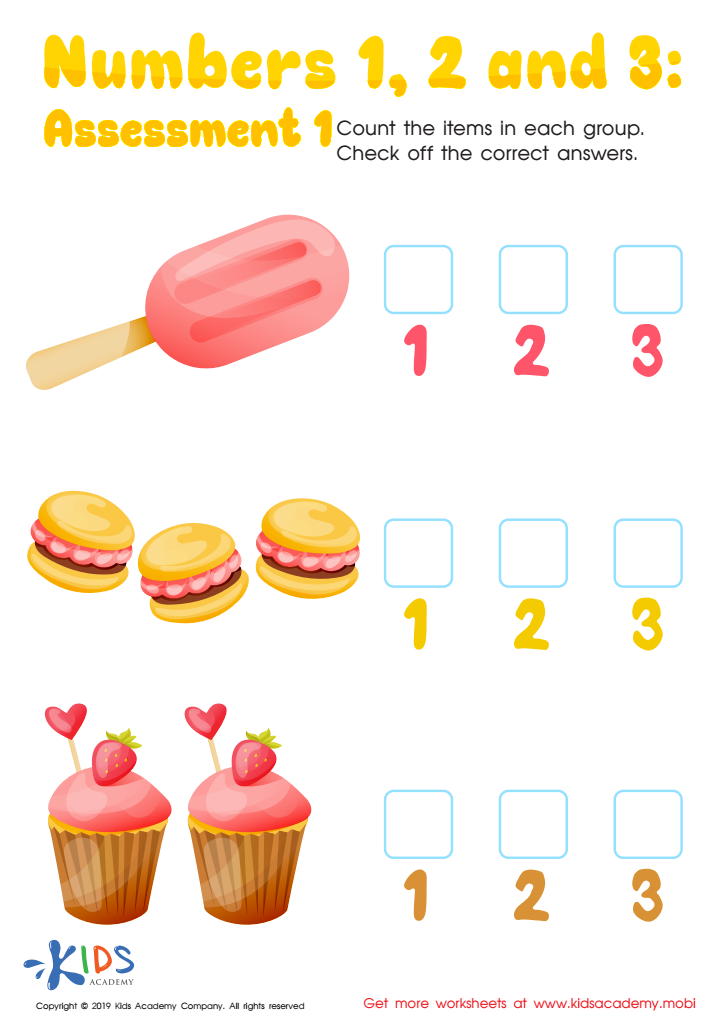

Numbers 1, 2 and 3: Assessment 1 Worksheet


Build with 9 Worksheet
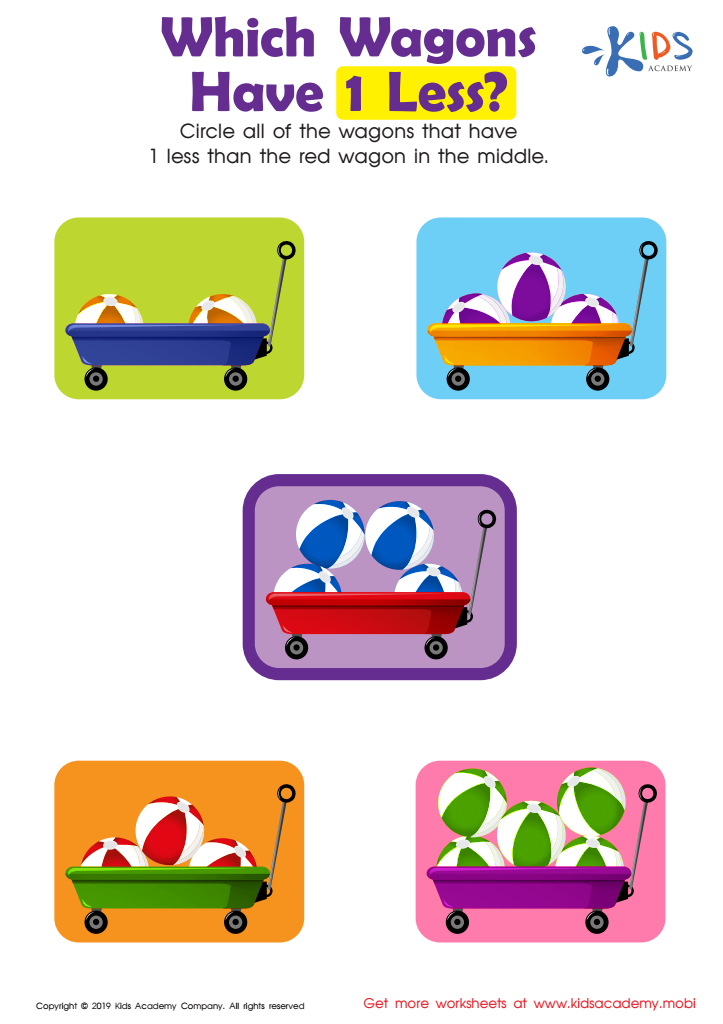

Which Wagons Have 1 Less? Worksheet
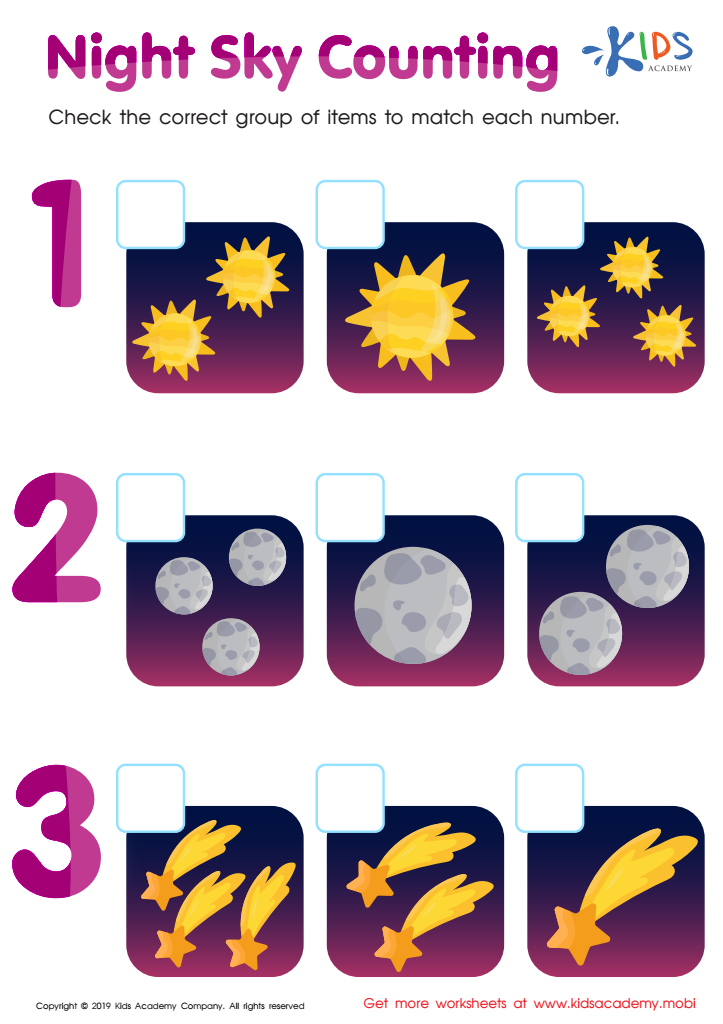

Night Sky Counting Worksheet
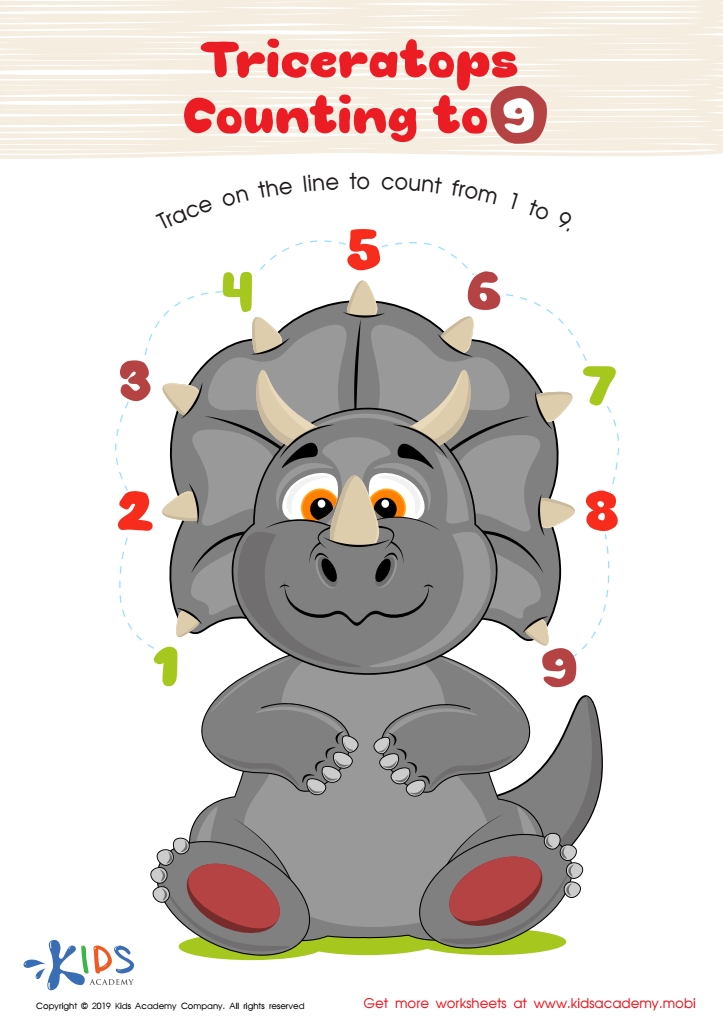

Triceratops Counting to 9 Worksheet
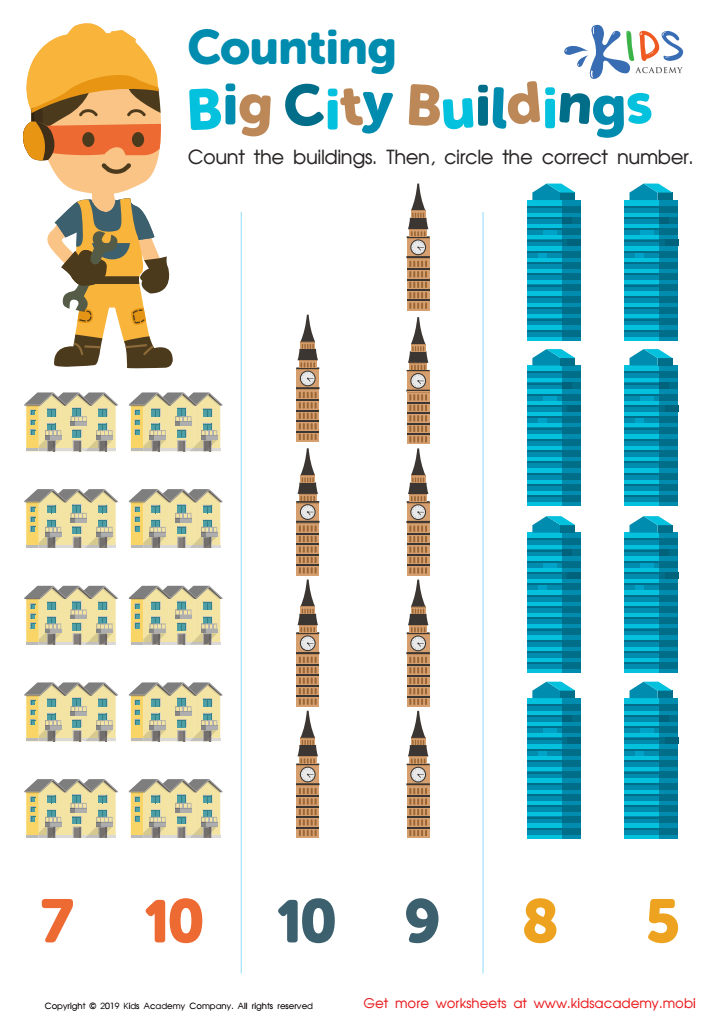

Counting Big City Buildings Worksheet
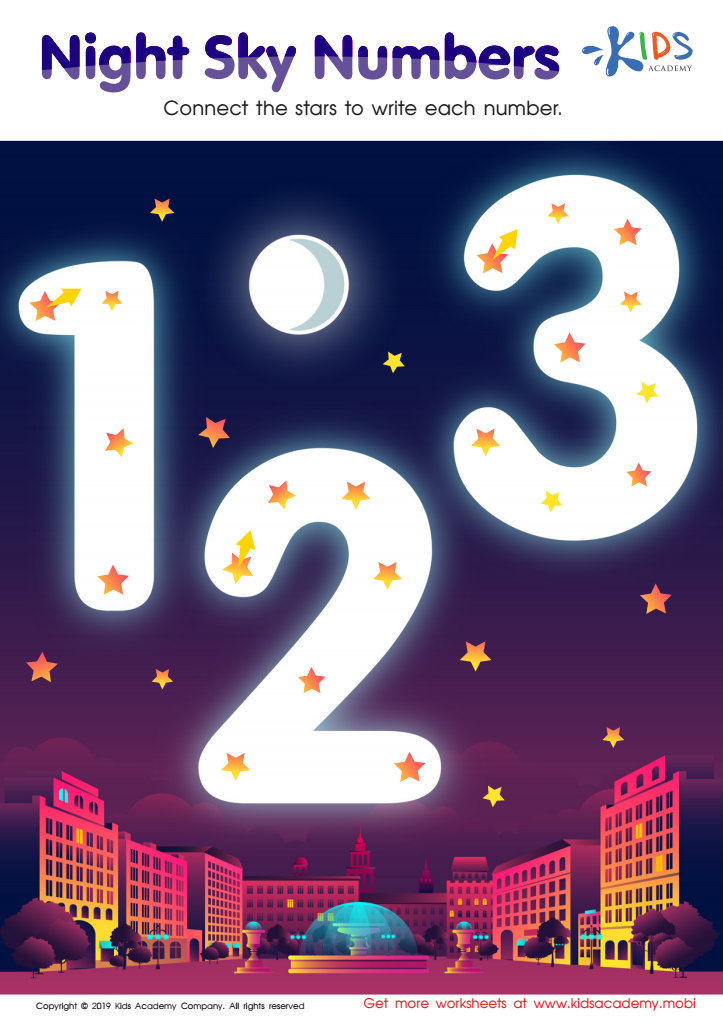

Night Sky Numbers Worksheet
Cognitive Development Easy Numbers for ages 3-6 is crucial as it lays a foundational stone for later learning and academic success. In these formative years, children’s brains are highly receptive and capable of rapid growth. Engaging with numbers fosters problem-solving skills, enhances memory, and cultivates logical thinking.
First, familiarity with numbers in early childhood sets the stage for future mathematical learning, making complex concepts more accessible down the line. Children who have a strong grasp of early numeracy are often more confident and perform better in kindergartens as they encounter formal math instruction.
Second, number activities spark curiosity and a positive attitude toward learning. Simple counting games, puzzles, and everyday number exploration help children experience the joy of discovery and achievement. These positive experiences are integral in shaping lifelong learning attitudes and intellectual curiosity.
Moreover, early exposure to numbers is not just about mathematics. It aids in developing skills such as pattern recognition, spatial awareness, and sequencing, which are essential across various domains of learning.
Parents and educators who prioritize cognitive development in terms of easy number activities provide children with robust cognitive tools. These tools are imperative for the child’s overall growth, emotional regulation, and academic trajectory, ensuring a better prepared and well-rounded individual ready to tackle future educational challenges.
 Assign to My Students
Assign to My Students

















